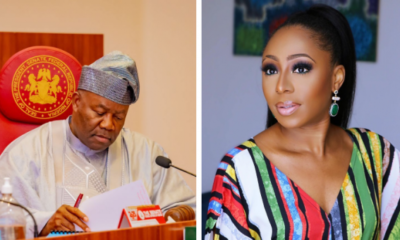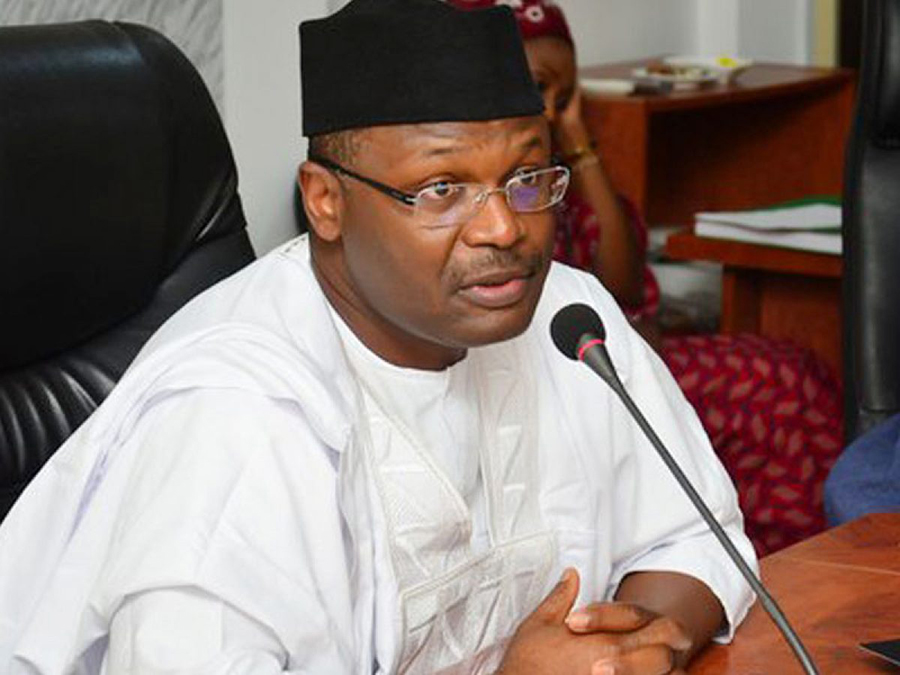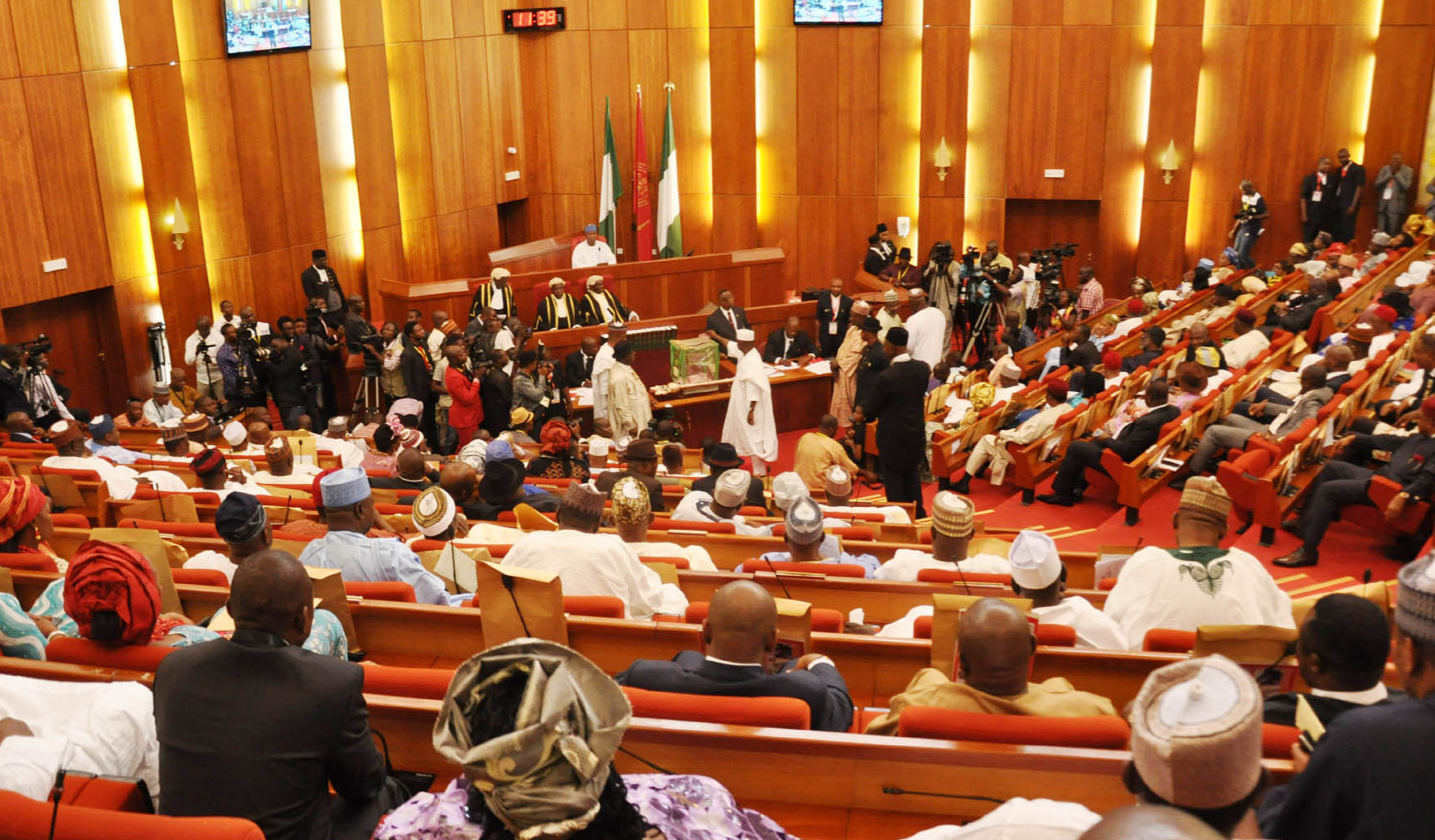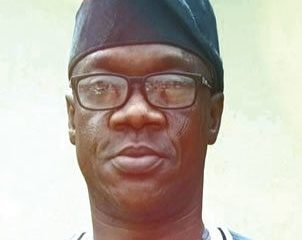News
Jonathan, Lamido Trade Words, Denies Selling Out Bayelsa To APC
Published
5 years agoon
By
Editor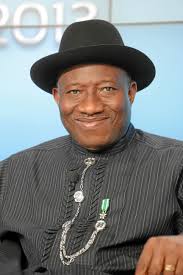
Former President Goodluck Jonathan, has said he did not trade off Bayelsa State to the All Progressives Congress, as alleged by a former Governor of Jigawa State, Sule Lamido, describing the allegation as “incorrect and a blackmail.”
Lamido had accused the former president of trading off the state to the APC in the just concluded gobernosrhip election in the state.
Jonathan who spoke through a statement by his Media Adviser, Mr Ikechukwu Eze, said it was not only in Bayelsa State that the country had experienced such a situation where Peoples Democratic Party or even the All Progressives Congress had lost elections to another party.
He stated that it was true that Jonathan, who is a former deputy governor and governor of Bayelsa States, as well as former Vice President and President of Nigeria, was loved and respected by his people.
Eze noted that holding Jonathan responsible for the PDP’s loss in Bayelsa without first investigating the issues that determined the fate suffered by the party in the state was not only disingenuous , but also detrimental to the image and aspirations of the party .
Accroding to him, it will be tantamount to playing God for anybody to expect that the former President should command a vice- like grip on every Bayelsan in all the local government areas in his state .
“ Jonathan would want to counsel Lamido and others in his shoes to look at their national passports . They would see that their citizenship is Nigeria . We are first Nigerians before we are members of any political party or social organisation . If Lamido does not know that , then it is a pity .
“We chose to make this clarification just to set the record straight, especially as a number of the former President ’ s close associates have been asking questions about the blatant statement credited to Lamido .
“Where was Lamido when Jonathan campaigned vigorously and helped the PDP to win Bayelsa governorship election in 2015 , under the same President Buhari?”, Eze questioned.
Eze disclosed that it was untrue that Jonathan traded off Bayelsa so that he would not be implicated in the Malabu oil scam.
He said Lamido probably knows very little about the Malabu case, saying he (Lamido) ought to have commented since he knows no much about it.
He explained that the Malabu oil block was not given out by Jonathan, adding “it was a deal that was sealed during the time of late Head of State, Gen. Sani Abacha.”
“Jonathan is convinced that Lamido ’ s intervention in this matter was deliberately designed as a form of blackmail . Having tried many other ways to discredit the former President to no avail Lamido is now scheming to project Malabo as Jonathan ’ s Achilles heel. Here again he has failed because the true story of Malabo is already very well known to Nigerians .
Eze said that Jonathan is innocent of the Malabu scam.
He added , “ We call on anyone , including Lamido , who has any shred of evidence linking former President Jonathan to any wrongdoing in the case of the Malabu incident to waste no time in publishing such evidence or forever remain silent .
He said Jonathan did not ask for or collect any bribes over the Malabu deal , neither had he been charged for asking or collecting bribes , neither will he ever be charged with asking for or collecting bribes , because such never happened .
You may like
News
Ifeanyi Ubah: Peter Obi Mourns, Reveals Last Discussion With Late Senator
Published
41 mins agoon
July 27, 2024By
Editor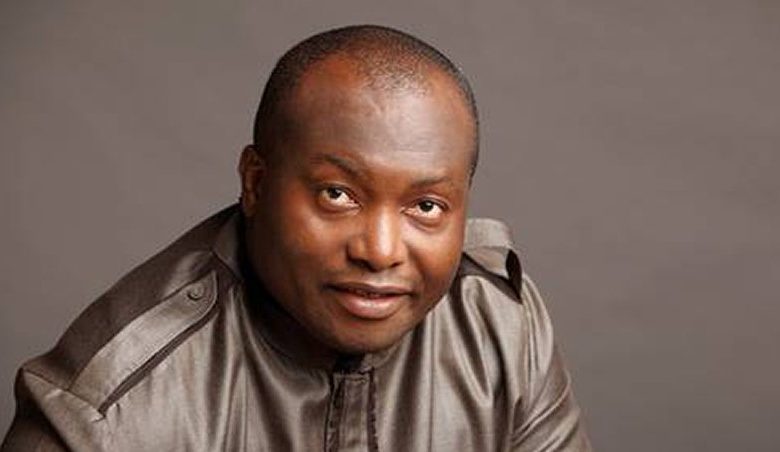
Labour Party presidential candidate in the 2023 general elections, Peter Obi, has mourned the passing of Senator Ifeanyi Ubah.
Recall that Ifeanyi Ubah died in London on Saturday
Reacting to the development, Obi, in a statement on his X handle, said Ubah’s death was a rude shock.
“I received a rude shock this morning, the news of the death of my dear younger brother, and Senator Representing Anambra South Senatorial District, Senator Ifeanyi Ubah.”
READ ALSO: BREAKING: Senator Ifeanyi Ubah Is Dead
Obi recalled that he was welcomed by Ubah after attending the burial of Chief Pius Onwuzo in Nnewi, Anambra State, on July 12th.
Obi also prayed that God should grant Ubah eternal rest.
“Senator Ubah personally welcomed me at the burial and requested that I visit his house for lunch, to which I pleaded with him to reschedule to another date as I already had several engagements for the day.
“During our discussions on the state of the nation, he told me that he now understands my commitment to the progress of humanity and that he aligns with it.
“He assured me that, despite our party differences, we would work together as a family, in serving our people.
READ ALSO: Why Anti-subsidy Protests Didn’t Turn Violent Under Jonathan – Ex-DSS Director
“Similarly, despite party differences, I commended him for his contributions to a better humanity through his Ifeanyi Ubah Foundation, via which he cared for the less privileged in society, by investing in their education and health and pulling people out of poverty. I urged him to continue in that direction.
“May God Almighty who called him home, at this time, forgive his sins and grant him eternal rest, and grant his family, the entire Anambra South Senatorial District; Anambra State; Nigeria; and all of us, the fortitude to bear this sad irreplaceable loss.
“God Almighty protect and bless his family always.”

Nigerian Senator who represents Anambra South, and an All Progressives Congress (APC) stalwart, Senator Ifeanyi Ubah, is dead.
Ubah died in a hotel in London, the United Kingdom. He had left for London two days ago.
Ubah was a Nigerian Politician, entrepreneur and businessman who until his death served as the CEO of Capital Oil (CCO), which he founded in 2001.
The deceased was married to Uchenna, a Business Administration graduate from Ahmadu Bello University in Nigeria, with whom he had 5 children. He also ran a foundation which is named after himself; Ifeanyi Ubah Foundation.
READ ALSO: Why We Disguise As Alfas, Pastors, Seek Spiritual Protection — Yahoo Boys
In September 2022, Ubah escaped assassination when he was attacked by gunmen on his way to Nnewi in Enugwu-Ukwu in Anambra State. His convoy was shot at and at least 5 persons, including two policemen, were killed.
He survived as the vehicle he was riding in was bulletproof.
News
Why Anti-subsidy Protests Didn’t Turn Violent Under Jonathan – Ex-DSS Director
Published
5 hours agoon
July 27, 2024By
Editor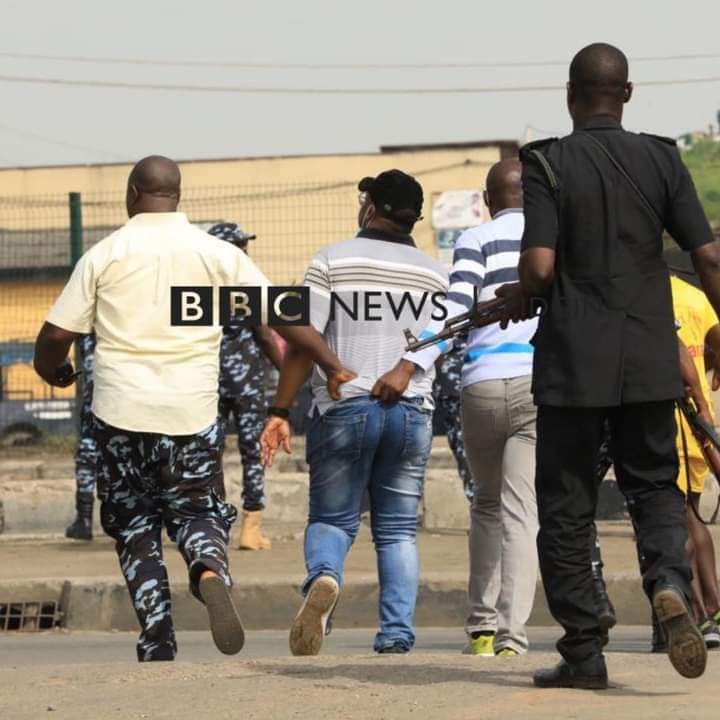
A former Director, Department of State Services, Mike Ejiofor, has said the protest staged to kick against attempts by former President Goodluck Jonathan-led government to remove petrol subsidy in 2012 didn’t turn violent partly because of ‘the body language’ of the former President.
Ejiofor, who is the President of the Alumni Association of the National Institute for Security Studies, also said that the protesters also didn’t go irate because the situation in the country was not as bad as it is presently.
The former DSS boss gave the explanation while speaking on the planned #EndBadGovernance August 1 – 10 protests, and the moves of government to dissuade the organisers from storming the street.
Recall the DSS on Thursday warned the organisers of the planned nationwide protests against proceeding with the action, saying it uncovered a plan “by some elements to infiltrate the protest and use it to cause chaos and extreme violence in the land.”
Also, the military and police have also warned against the protest scheduled to be held from August 1 to 10 in response to the economic hardship experienced in the country.
READ ALSO: Porn, betting sites recorded 162m Nigerian visitors in June – StatiSense
“The level of violence being envisaged can only be described as a state of anarchy. The armed forces on its part will not stand by and allow anarchy to befall our nation,” defence spokesman, Major General Edward Buba said on Thursday.
Meanwhile, speaking during an interview on Arise TV Morning Show, Ejiofor on Friday while answering question on why the protest of 2012 was not subjected to threats and a clampdown by security agencies, said it was partly because of the body language of Jonathan who was the then president and the situation of the country as of 2012.
He, however, said the present situation in the country has left a hard condition posing fears that the planned protest if staged, has the tendency to be hijacked because people are now “hungry and desperate”.
“The 2012 protest didn’t turn violent, one, because of the body language of the sitting president then. He allowed everything to go and the situation was not as bad as what we have now. Now, it can be exploited because people are hungry, desperate and want to use anything to vent their anger,” he said.
Arguing that while the right of the people to protest remains sacrosanct, the fear of the protest being hijacked remains high, and could be exploited by people who may seize the situation to push their personal interest.
“It is their legitimate right to protest as enshrined in the constitution. But I think they (organisers of protest) did us a lot of good by giving sufficient notice to the government of their intentions to go on protest and you can see the grounds of appeals from various stakeholders, interests groups appealing to them to shelve the plan.
READ ALSO: FULL LIST: Those Supporting, Against Aug 1 Nationwide Protest
“No matter how good their intentions are, I believe this will be hijacked eventually,” he said.
Maintaining that “the fear is very high that this protest will be hijacked”, he added that “Some people see this government as the best government whatever because of their personal interest not because of national interest… they would also represent their own interest, not the interest of the government, so that’s why we are afraid it might be hijacked.
“Some people might tell you that this APC government is not doing well, others will tell you that this is the best government.
“So, you have conflicting interests. That is why it is necessary that for now because of the enormous security challenges we have, we should not compound our problems by engaging in more protest.”
Recalling the #EndSars 2020 protest which according to him led to properties being destroyed with losses incurred by the nation and individuals, he added that though the organisers pf the #EndBadGovernance protest may have a course to protest, considering the hardship in the country, people of ulterior motives may hijack the process.
READ ALSO: HOMEF Set To Hold National Conference On GMOs And Biosafety In Nigeria
“Looking at their demands, we will all agree that there is economic hardship in the country, there is hunger and anger in the land, but again people who are more hungry now will explore the opportunity to loot people’s shops and it will eventually turn violent and that’s why we will continue to appeal to organisers to shelve the plans and give government time to look at it,” he said.
On the warnings by security agents, Ejiofor said the security agents have the duty to respond with force should the protest turn violent.
“Nobody is saying they should not protest but if you protest and it turns violent, the government has the statutory mandate of protecting the state and the innocent citizens. The point remains that people have the right to protest as long as it doesn’t turn violent,” he said.
He, however, warned against comments by some aides of the President Bola Tinubu which he described as “provocative” and could engender provocations with ethnic colouration and religious connotations.
“There are other issues agitating my mind; the issue of some provocative statements that the president’s aides are making that is likely to provoke people, giving it political meaning, ethnic colouration, religious connotations and what a view. These are not helping issues,” he said.
READ ALSO: DSS Warns Against Planned Nationwide Protest, Identifies Sponsors
He called on President Tinubu not just to stop at consulting with interest groups in the country, but to also extend the reach to the common Nigerians at the grassroots while stressing the need for the President to address the nation in a broadcast.
“The ordinary man in the street needs also to know what is happening because some people do not even have electricity to look at the nation to know what is going on. I think the president needs to directly speak to the people, maybe make a national broadcast, this will help in relaxing the situation,” he said
Maintaining a similar position, the National Coordinator, the Grassroots Mobilisation Initiative and former spokesperson for the Coalition of Northern Groups, Sama’ila Musa, called for dialogue, submitting the presidency should “come out and address the people and sympathise with them.”
Also featuring on Arise TV morning show on Friday, Musa mentioned that current cases of rampage and looting of goods of private individuals, particularly as experienced in the Northern part of the country pose a risk of what may become of the protest should it go on.
“There is so much anger in the land. A lot of people are not happy because of some kinds of hardship in the land. It’s obvious people are complaining, prices are rising and all that, and people are suffering and you believe with me that is why people are actually calling for this protest.
“We are afraid with the level of anger right now in the Country, especially in the North as it is, we’ve seen cases where truckloads of food stuffs belonging to traders, maybe got spoilt somewhere on the road and people just move in and start offloading it, helping themselves out and that’s without riot. How much more what’s going to happen when you call for a mass protest, to what extent can the police curtail the excesses when you have situations like this?”, he queried.
He mentioned the situation may degenerate to criminal elements of the protesters “going to start looting people’s properties and vandalising ordinary citizen’s properties, carting away their goods.”
PUNCH

Ifeanyi Ubah: Peter Obi Mourns, Reveals Last Discussion With Late Senator

China Takes First Olympic Gold As Rain Disrupts Games

Celine Dion Charged $2m To Perform At 2024 Paris Olympics Amid Health Battle [VIDEO]
Trending

 News2 days ago
News2 days agoNationwide Protest: The Killer Is Afraid Of Death [OPINION]

 News4 days ago
News4 days agoJUST IN: Tinubu Sends ₦70,000 Minimum Wage Bill To NASS

 Entertainment4 days ago
Entertainment4 days agoActress Denies Alleged Affair with Senate President Akpabio

 News3 days ago
News3 days agoSix Things To Know About Vivian Wilson, Elon Musk’s 20-year-old Transgender Daughter

 Politics2 days ago
Politics2 days agoPlace Obaseki On Security Watch List, Edo APC Urges FG, As State Govt Kicks

 News3 days ago
News3 days agoPAP: Again, Otuaro Meets Stakeholders, Re-emphasises Importance Of Collaboration

 Headline3 days ago
Headline3 days agoBREAKING: SGF, NSA, Ministers In Emergency Meeting Over Planned Nationwide Protest

 News2 days ago
News2 days agoBREAKING: INEC Can Handle Local Government Elections, Says Chairman Yakubu

 News4 days ago
News4 days agoJUST IN: Senate Passes Minimum Wage Bill From N30,000 To N70,000

 News4 days ago
News4 days agoOPINION: If Tinubu Were Today’s Opposition Leader










